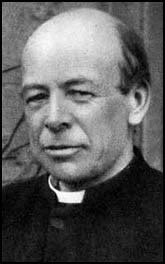Henry Scott Holland
|
The Revd Canon Professor Henry Scott Holland |
|
|---|---|
| Regius Professor of Divinity University of Oxford |
|

Holland c. 1910
|
|
| Church | Church of England |
| Archdiocese | London |
| Province | Canterbury |
| Metropolis | Birmingham |
| Diocese | Diocese of Oxford |
| See | Canterbury |
| Appointed | 1911 |
| In office | 1911 to 1918 |
| Predecessor | William Ince |
| Successor | Arthur Headlam |
| Other posts | Canon of Christ Church, Oxford |
| Personal details | |
| Birth name | Henry Scott Holland |
| Born |
27 January 1847 Ledbury, Herefordshire |
| Died | 17 March 1918 (aged 71) Christ Church College, Oxford |
| Buried | All Saints, Cuddesdon Parish Churchyard |
| Nationality | British |
| Denomination | Anglican |
| Residence | Christ Church College |
| Parents | George Henry Holland and Charlotte Dorothy Holland (nee Gifford) |
| Occupation | Professor of Divinity |
| Profession | Anglican priest |
| Alma mater | Christ Church, Oxford |
Henry Scott Holland (27 January 1847 – 17 March 1918) was Regius Professor of Divinity at the University of Oxford. He was also a canon of Christ Church, Oxford. The Scott Holland Memorial Lectures are held in his memory.
He was born at Ledbury, Herefordshire, the son of George Henry Holland (1818–1891) of Dumbleton Hall, Evesham, and of the Hon. Charlotte Dorothy Gifford, the daughter of Lord Gifford. He was educated at Eton where he was a pupil of the influential Master William Johnson Cory, and at the Balliol College of the University of Oxford where he took a first class degree in Greats. During his Oxford time he was greatly influenced by T.H. Green. He had the Oxford degrees of DD, MA, and Honorary DLitt.
After graduation, he was elected as a Student (fellow) of Christ Church, Oxford. In 1884, he left Oxford for St Paul's Cathedral where he was appointed canon.
He was keenly interested in social justice and formed PESEK (Politics, Economics, Socialism, Ethics and Christianity) which blamed capitalist exploitation for contemporary urban poverty. In 1889, he formed the Christian Social Union.
In 1910, he was appointed Regius Professor of Divinity at Oxford University, a post he held until his death in 1918. He is buried in the churchyard of All Saints church, Cuddesdon near Oxford. Because of his surname, Mary Gladstone referred to him affectionately as "Flying Dutchman" and "Fliegende Hollander" {{}}.
...
Wikipedia
